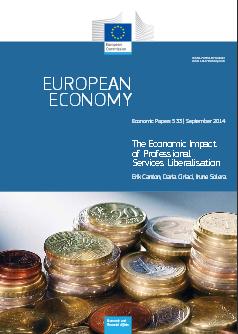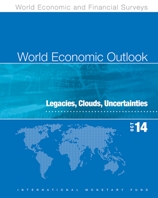Kirkegaard, F. J. (2014) “ECB Sovereign Bond Purchases Remain Unlikely“, Peterson Institute for International Economics, 01 October. The European Central Bank (ECB) is reportedly on the cusp of another round of euro area sovereign bond purchases. Proponents of such a move say it is necessary if the ECB is to grow its balance sheet by the €750 billion to €1 trillion signaled by its president, Mario Draghi, on September …Read More
Debt Rattle Oct 1 2014: Europe Is Crumbling Into Collapse
Ilargi Meijer, Ρ. (2014) “Debt Rattle Oct 1 2014: Europe Is Crumbling Into Collapse“, The Automatic Earth, 01 October. For me, the quote of the day is this one: “If there’s a periphery of the eurozone’s periphery, that’s Naples.”. The city of Napoli hosts ECB boss Mario Draghi and the heads of Europe’s central banks this week in some very posh former Bourbon family royal palace, and the contradictions …Read More
Direct central bank purchases of government debt
Mitchell, B. (2014) “Direct central bank purchases of government debt“, Bill Mitchell Blog, 02 October. There was a recently published Federal Reserve Bank of New York Staff Report – Direct Purchases of U.S. Treasury Securities by Federal Reserve Banks – by Kenneth D. Garbade, which recounts the way the central bank in the US could purchase unlimited amounts of treasury debt by creating funds out of thin air and …Read More
The who and how of disappearing routine jobs
Cortes, M., Jaimovich, N., Nekarda, J. C. & Siu, H. (2014) “The who and how of disappearing routine jobs“, VoxEU Organisation, 02 October. As routine tasks are increasingly automated, middle-wage jobs are becoming rarer. This column documents the changes in labour-market dynamics behind polarisation, and investigates which workers are affected by it. Flows into middle-wage routine jobs are declining (rather than flows out increasing). Interestingly, routine cognitive workers – …Read More
Why Italy Will Not Make It
Orsi, R. (2014) “Why Italy Will Not Make It“, LSE EUROPP, Eurocrisis in the Press, 01 October. Three articles by prestigious commentators (Ambrose Evans-Pritchard and Roger Bootle for The Telegraph, Wolfgang Münchau for Financial Times) have recently appeared in the financial press about the economic situation of Italy and the (in)stability of its national debt. The arguments and wording of these pieces deserve special attention, as their appearance may …Read More
The Economic Impact of Professional Services Liberalisation
Canton, E., Ciriaci, D. & Solera, I. (2014) “The Economic Impact of Professional Services Liberalisation“, European Economy. Economic Papers. 533. September 2014 Competition in professional services is, in some occasions, hindered by excessive regulation. This may constrain business dynamics (entry and exit of firms) and create inefficiencies and excessive rents. To improve market performance in those professional services generally regulated, several EU countries have reduced regulatory restrictions regarding the …Read More
The ‘dos and don’ts’ of a growth-friendly policy mix for the Euro area
Altomonte, C. & Aguilante, T. (2014) “The ‘dos and don’ts’ of a growth-friendly policy mix for the Euro area – combining monetary, fiscal and structural measures at the union level and at the national level“, Bruegel Think Tank, 01 October. When looking at possible ways out of the euro area crisis, there is a growing consensus that it will require “a policy mix that combines monetary, fiscal and structural measures at the …Read More
World Economic Outlook (WEO) Legacies, Clouds, Uncertainties
IMF (2014) “World Economic Outlook (WEO) Legacies, Clouds, Uncertainties“, International Monetary Fund Publications, October. Chapter 3: Is It Time for an Infrastructure Push? Τhe Macroeconomic Effects of Public Investment This chapter finds that increased public infrastructure investment raises output in both the short and long term, particularly during periods of economic slack and when investment efficiency is high. This suggests that in countries with infrastructure needs, the time is …Read More
Solving Europe’s Credibility Problem
Pisani-Ferry, J. (2014) “Solving Europe’s Credibility Problem“, Project Syndicate, 30 September. As the eurozone debates how to escape the stagnation trap in which it finds itself, one question has become increasingly important: Can governments credibly commit to trim public spending in the future while avoiding immediate cuts? Fortunately, the answer is a qualified yes: there are ways to ensure that fiscal accommodation now is followed by consolidation later. Growth …Read More
Re-discovering the Phillips curve
Andor, L. (2014) “Re-discovering the Phillips curve“, VoxEU Organisation, 01 October. Negative real interest rates imply redistribution from savers to debtors. This column, by the EU Commissioner for Employment, Social Affairs and Inclusion, argues that such redistribution would benefit the whole economy. It would strengthen aggregate demand – including investment demand – at time when such a boost is clearly needed. As a contribution to the EU’s institutional transition, …Read More






